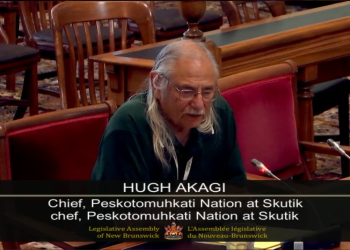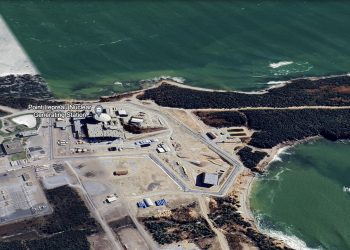An article in the NB Naturalist, published July 1, 2014, highlights New Brunswick’s current unwise and uneconomic use of its forest resource. The article “Forestry Jobs and Forestry Management in the Maritimes and Northeastern USA” by economist Rob Moir and energy consultant Garth Hood, documents New Brunswick’s unfavourable comparison to other regional players in the effective use of its forest resource to create jobs.
The authors show how New Brunswick has fallen progressively further behind Maine, Nova Scotia, New Hampshire, Vermont, Quebec, Ontario and New York in generating direct employment from equivalent amounts of wood. The common measure of the effectiveness (proficiency) of creating jobs in the forest industry is “direct jobs per 1000 cubic metres” of timber harvested (j/km3).
On the surface, this measure is a difficult concept to appreciate, but for comparison, the performance of the regional players in Canada range from a low in New Brunswick of 1.38 j/km3 to 3.91 j/km3 in Ontario, with a regional average of 2.58 j/km3. Our nearest U.S. neighbour, the State of Maine achieves a proficiency of 1.58 j/km3. Our nearest Canadian neighbour, Nova Scotia, achieves a proficiency of 1.64 j/km3.
So what do these figures mean in practical terms? Given an annual harvest in New Brunswick of over 5 million cubic metres of softwood and hardwood, Maine has created and sustained 1000 more direct jobs than New Brunswick on this same amount of wood; Nova Scotia generates 1300 more jobs. Regionally in Canada, provinces, on average, generate 6000 more direct jobs than NB on this amount of wood. Clearly New Brunswick is missing economic opportunity and is challenging its environment by doing “business as usual” in the forest industry.
The transition to using the forest more proficiently to create jobs cannot happen overnight, and neither can the transition occur if the government does nothing. The nature of big business and the wood products market is counter to highly proficient timber usage. Industry is geared to products that require fewer and fewer workers to produce. Moir and Hood show that NB’s newly proposed forest strategy will actually drive New Brunswick’s proficiency downward another 5%.
Given that the province can no longer increase the Annual Allowable Cut (AAC) to create more jobs without compromising environmental values, the province needs to embrace the idea of increasing its proficiency of turning the current AAC into greater employment opportunity. In most jurisdictions, this is achieved by promoting the secondary wood processing industries.
If the province committed itself to a target of increasing its current proficiency from 1.38 to 1.48 j/km3 (7%) over the next five years, the initiative would result in 500 more long-term, sustainable direct jobs without any increase in the annual allowable cut, and without creating additional environmental costs. By comparison, a major mining proposal projects to produce 270 unsustainable jobs for 27 years, jobs that will dry up and be gone at mine closure, leaving in its wake a trail of disastrous environmental and social costs.
If the province is going to pursue natural resource utilization, then its “best bang for the buck” is not in mining, or in continuing down the road of the unproficient pulp and paper industry. Rather, the province should be promoting the conditions and forestry practices that will enhance its effectiveness in converting a limited forest resource into jobs. Industry will not initiate this change in direction without an incentive to do so; it runs counter to the “profit at any cost” mentality. Clearly New Brunswick needs a progressive tax strategy that encourages businesses to create more jobs from the current allowable cut, and government needs to explore industry incentives and forestry practices that contribute to this goal. The government can start this transition by linking stumpage fees to proficiency performance, by taxing heavily any profit that has not resulted in increased employment per unit of harvest, and/or by providing tax breaks to those enterprises that increase proficiency.
With so many regional partners achieving much more effective and proficient use of their forest resource, the models for achieving these goals are already in place. It is time for NB to do better.
Lawrence Wuest is a forest ecologist living in Stanley, NB. He is a frequent commentator on forestry and mining.










